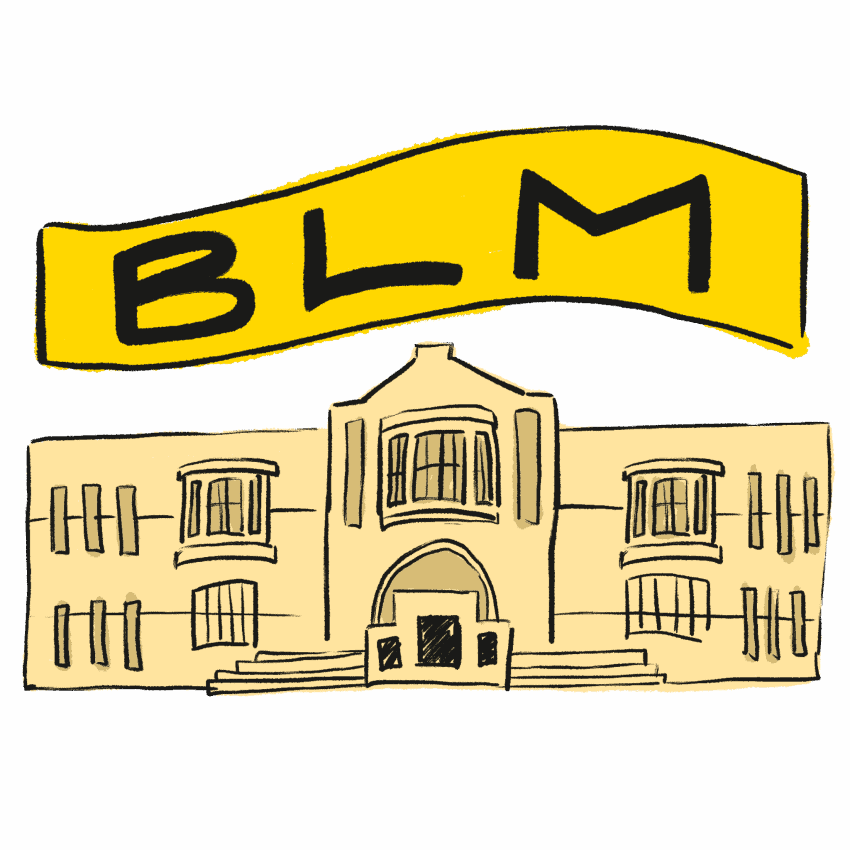
A number of University of Saskatchewan scholars joined a nationwide strike in response to discrimination within Canadian institutions against Black and Indigenous people.
On Sept. 9 and 10, thousands of academics worldwide put their administrative tasks and teaching duties on hold for the Scholar Strike. The idea was inspired by the NBA strikes, which started with the Milwaukee Bucks, in response to the shooting of Jacob Blake. The academics who participated used the time to host digital teach-ins on their website and show solidarity with Black and Indigenous Canadians.
Rachel Engler-Stringer, a U of S associate professor in the department of community health and epidemiology, joined the strike to further educate herself and make her students aware of issues outside of the classroom.
“Systemic racism impacts our institutions, and universities have a really important role to play in that,” says Engler-Stringer.
Although only some professors in the university participated in the strike, Melissa Just, the provost and vice-president academic, sent an email to staff saying that they “fully support any U of S scholar who decides to join the Scholar Strike for Black Lives Canada.”
Maurice Jr. Labelle, an associate professor in the department of history, saw the strike as an opportunity for U of S scholars to show support with their actions and not just their words. He adds that different forms of racism and inequalities are still very predominant in all areas of society.
“I wanted to lend my support in a very small way through this labour action,” says Labelle.
Despite the recent university’s statement on racism, some staff and students feel that the administration refuses to acknowledge evidence of discriminatory practices across campus.
Indigenous Students’ Union President Paydahbin Aby-Hester, has recently expressed her concerns over the historic oppression of Indigenous students, staff and faculty on campus, while discussing the union’s recent name change. The ISU is in support of the Indigenous staff and faculty from the College of Education that are requesting President Peter Stoicheff to acknowledge racism within the college.
Some of Scholar Strike Canada’s demands is to redistribute police funding to Black, Indigenous and queer communities, abolish campus police and address the ongoing underrepresentation of Black and Indigenous faculty members in Canadian institutions.
Students who identify as traditional or cultural Aboriginal persons have been found to be more likely to face discrimination on Canadian univeristy campuses. Engler-Stringer believes that it is part of the university’s responsibility to examine the role they play in society.
“The university is well aware of the climate in which we are currently existing,” Engler-Stringer said. “We tend to come from privileged backgrounds and I see it as our responsibility to respond to those who come from marginalized communities.”
The digital teach-ins hosted during the strike allowed scholars to educate themselves on a range of subjects including “Gender, Colonialism and Anti-Black Police Racist Violence,” which was a discussion led by Erica Violet Lee, a nēhiyaw writer and community organizer from inner-city Saskatoon.
Engler-Stringer believes that the strike is important, but highlights that the fight for racial justice should not be a one-time thing for professors.
“I’ve been participating for a long time in my own education and trying to understand how I belong within the systems that exist,” says Engler-Stringer. “It’s been an ongoing process, it’s not something you can do for just two days and then stop.”
—
Ammara Syeda | Photo Editor
Graphic: Anh Phan | Design Editor
Leave a Reply